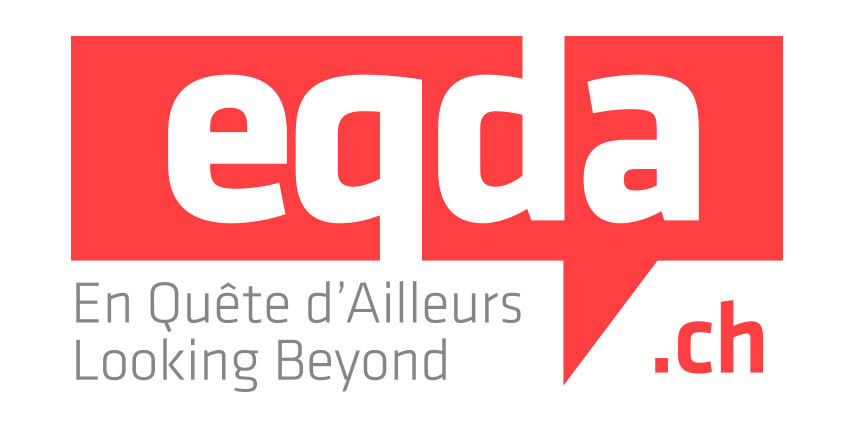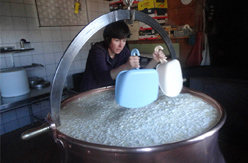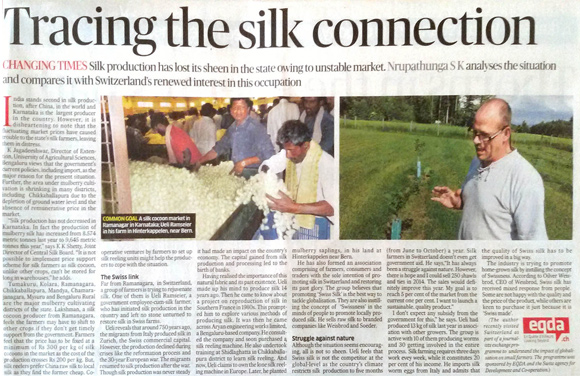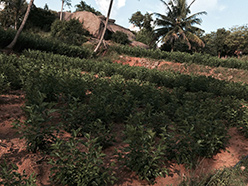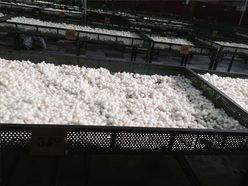Nrupathunga S K
Swiss dairy farmers are literally facing an uncertain future and fear that free trade agreement on cheese between Switzerland and the European Union will adversely affect them.
They know that they have to be innovative to tide over the crisis. Farmers are already facing the heat of globalization and the number of farmers depending on dairy farming is seeing a decline.
According to Daniel Koller, representative of the Federation of Swiss Milk, the number of milk producers has declined in the recent years. The number of milk producers slumped to around 23,000 in 2013 from 25,223 in 2011, over 10 per cent drop. This is a matter of concern. The decline has continued. He is of the opinion that big and marginal milk producers are more prone to the effects of globalisation than small milk producers. Small milk producers have already diversified into other activities to tide over the situation. Some are running restaurants and many have taken up tourism activities. But the big milk producers are not yet prepared for the possible impact of the globalisation on the industry. Unable to tackle the growing concerns and problems, many are opting out of the dairy farming as an easy way out, he added.
The Organisation of Economic Cooperation and Development (OECD) has clearly stated that the proposed free trade agreement between the United States and European Union will have a major impact on Swiss agriculture. Producers may lose agriculture revenue as local producers have to compete with EU producers in the open market. It is estimated the Switzerland would lose up to 1 billion Swiss franc out of 10 billion Swiss franc agriculture revenue. However, consumers would benefit from the lower prices of products. Even the government will have less revenue. So, the milk producers have to prepare themselves to face the forthcoming challenges.
Adversity brings sometimes best out of a person. Some cheese traders have started aggressively branding and marketing their products in a bid to prevent customers from moving towards imported products. As per the figures of the Federation of Swiss Milk, dairy farming accounts for one third of the earnings. Some 25 per cent of milk produced is processed and exported, mainly in the form of cheese. Till 2007, milk producers in the Alp country were in safe zone and were not exposed to globalization in a big way. But the situation changed after cheese trade between Switzerland and European Union and this paved way for more imports of cheese in the market. Since then, milk producers in general and cheese producers in particular are under pressure. They are leaving no stone unturned to retain popularity and reputation of the Swissmade cheese in the local market. Varieties of cheeses are produced in the country. Interestingly, there is no tax on import or export of cheese.
Disconcerting factor
Import of cheese is mainly from Italy, France and Germany. The disconcerting factor for Swiss farmers is the gap between import and export is steadily decreasing. In 2013, 53,845 tonnes cheese was imported and 68,255 tonnes cheese was exported. Now, the difference is declining regularly. The situation has turned worse this year because of slight difference in currency rate between Swiss franc and Euro. MP Jacques Bourgeois, who is also the director of Swiss Farmers’ Union, feels cheese producers should use the ambitious Swissness law as a weapon to counter the foreignmade cheese. The law was voted in June 2013 after a long debate. It is likely to come into force in 2017. Under the law, local manufacturers can print a label containing Swiss flag on the products only if 80 per cent materials used to prepare them are from Switzerland and the percentage of materials for milk products is 100, he added.
Alp-cheese stands out from the rest of the cheese produced in Swiss for its quality and the process. It is more of family farming in Alps. Joseph-Marie Dubosson, fondly called ‘Jojo’, makes 84 cheeses of three varieties everyday at Val d’llliez region with his wife, son and with a worker from Poland helping him.
Jojo produces 1,700 litre milk per day from 75 cows of three breeds. In order to produce five kg cheese, he needs 50 litre of milk. The family needs nearly two months to produce raclette cheese. Two Tomme and 70 serac cheeses are being produced per day. He said Val d’Illiez producers are striving to create a brand for the local cheese not only to face the competition from foreign cheeses but also for a better sale of their products in the local market. They want “Raclette AOP” (Appellation d’origine protégée” in French) Protected designation origin. So, they have approached the court seeking permission for this. But he takes to tourism activities during winter to supplement his income. The condition of most of the dairy farmers, who enjoyed protection and good life, is no better now.
